Solving the World’s Greatest Challenges
December 21, 2023
By Laura J. Cole ’04 ’08MLS
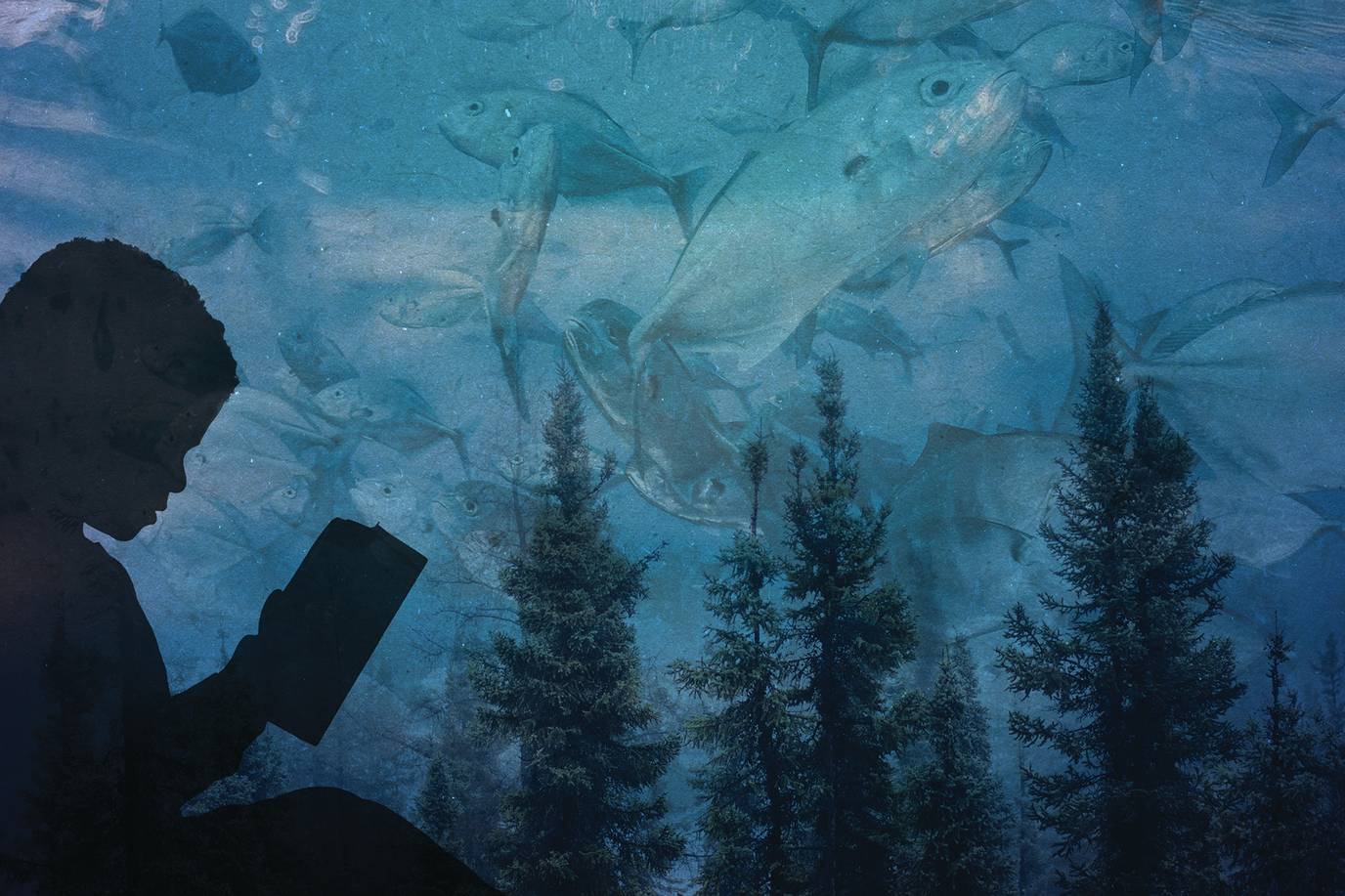
Rollins graduates earn more than a degree. They gain the knowledge and skills to address large-scale issues like climate change and human rights.
Christina Babbitt ’03 can trace her career in water conservation all the way to its source. Her junior year at Rollins, the international relations major enrolled in a class on sustainable development that culminated in a two-week field study in the Dominican Republic.
“That course really made me aware of how connected people’s lives are to the resources they have access to, especially water,” says Babbitt. “The class also solidified my interest in working in sustainable development, and subsequent experiences narrowed my focus on water.”
After graduating from Rollins, Babbitt earned a master’s in environmental science from Florida International University, followed by a PhD in natural resources sciences with a focus on water policy at the University of Nebraska–Lincoln. From there, she took a role with the Environmental Defense Fund, where she worked on implementing “the most significant water legislation to pass in California in the last 100-plus years.”
Now she holds the title of global water lead at Starbucks. At the global coffee conglomerate, Babbitt is able to look at implementing critical programs at a scale she says isn’t possible working for a nonprofit.
“As a company, we rely on having sufficient quantities of water to grow our commodities, like coffee, support our farming communities, and ultimately, support our business,” she says. “I help drive Starbucks’ approach to water stewardship in ways that positively impact the people and communities in our value chain while also working within a larger ecosystem to really engage people in ways that build momentum on the larger sustainability issues I’m passionate about.”
In many ways, Babbitt’s journey from the classroom to addressing major issues surrounding water on a global scale is part of a naturally winding course that starts with Rollins’ commitment to delivering an education that prepares students for so much more than a job.
It builds momentum as students gain the broad-based knowledge, real-world experiences, and 21st-century skills that enable them to earn positions like global water lead that didn’t even exist when Babbitt graduated. And it continues to flow as alumni across the country address the challenges that pose the largest threat to our society.
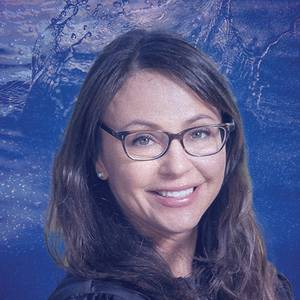
Conserving Water
We recently sat down with Babbitt to discuss what led her to water, so to speak, and what moves we can make as a society to ensure universal access to this essential source of life.
How did grad school expand your interest in water? “I did my research project focused on water use in eastern Africa, where I traveled with a colleague doing water-quality research. We’d go take samples, where we could see E. coli building up, next to people collecting water to bring back to their homes. It solidified how important water is to livelihoods.”
What’s been the biggest takeaway from your experience in this field? “I really valued my time working on California water because it showed me how everyone values water in different ways and that there are a lot of powerful groups that have a voice in water. Rather than taking a moral high ground, you have to come into those conversations with humility and bring people together to move forward and create meaningful change.”
At Starbucks, you’re focused on water on a global scale. But what should we be thinking about as individuals? “It’s a luxury in the U.S. to be able to turn on a tap and have water, but we still need to know what’s behind the pipe. Knowing where our water comes from is part of being an informed citizen and responsibly using the resources we’re so lucky to have access to.”

Building Sustainable Communities
After graduating with degrees in biology and environmental studies, Clayton Louis Ferrara ’09 landed a role at the Oakland Nature Preserve, where he discovered a student organization that he would help transform into a U.N.-accredited nongovernmental organization. Today, he’s the CEO of that NGO—IDEAS For Us—which is focused on engaging communities to scale environmental solutions by funding action and sharing best practices for a more sustainable planet.
How to Live More Sustainably
Ferrara shares his top tips for how we can incorporate sustainability practices in our daily lives.
Measure your carbon footprint ... Carbon calculators, like the ones on the EPA’s and The Nature Conservancy’s websites, will allow you to see a fuller picture.
... then reduce it. Plant some trees and native plants. Turn your patio into a jungle. Fill your house with indoor plants. All will help absorb and offset your carbon emissions.
Shrink the distance your food travels. Growing your own food or buying locally reduces that supply chain and minimizes the use of fossil-fuel-rich pesticides and fertilizers.
Make dietary changes. Eating vegan or vegetarian will help reduce your carbon footprint. If you eat meat, switching to products that are less carbon-intensive—like chicken instead of beef—will have a major impact.
Get involved. The best way to help is to figure out where you want to make a difference, then join—or start—an organization and build a community around that purpose.
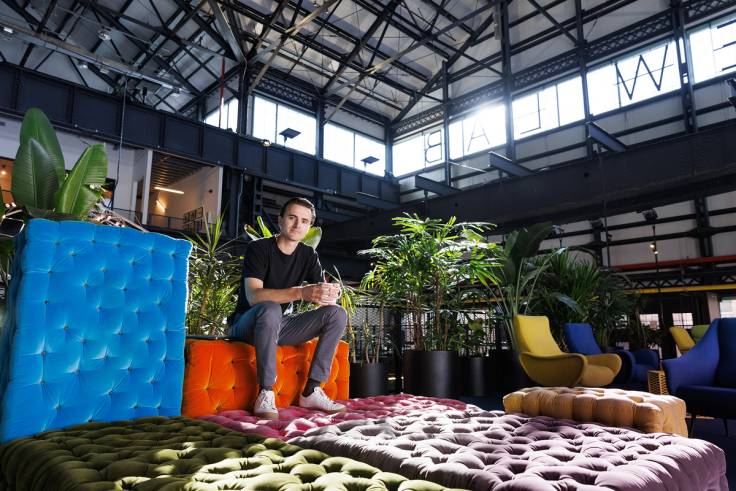
Tackling Climate Change
Parker Magness ’18 came to Rollins knowing he wanted to fight climate change but not knowing what direction he would take. After serving as an AmeriCorp Fellow and as a clean energy intern for the New York state government, the international business major landed a position as business development manager of membership at Newlab, which helps startups scale and commercialize emerging technologies designed to solve pressing challenges. In his role, he’s focused on climate tech, improving the sources of energy and energy storage and designing sustainable materials for everything from buildings and roads to textiles.
3 Climate Tech Companies to Watch
With his finger on the pulse of emerging climate technology, Magness predicts great things from these rising leaders as they tackle the climate crisis.
Amogy
The tech: Turning ammonia—an energy source denser than gasoline—into hydrogen to power a vehicle’s fuel cell
The impact: Creating carbon-free transportation
Vycarb
The tech: Monitoring and removing carbon dioxide from water
The impact: De-acidifying our oceans and waterways
Vela Bikes
The tech: Designing a classic frame with leading e-bike technology and reshoring manufacturing back to the U.S.
The impact: Providing a low-carbon way to commute
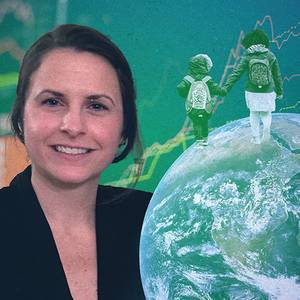
Fighting for Children
Kirsten Jensen ’04 is defying the idea that intergovernmental organizations move at a glacial pace. In her role as head of strategic projects and initiatives at UNICEF USA, she is responsible for breaking down bureaucratic barriers across divisions. It’s a critical role when considering she’s ultimately charged with relentlessly pursuing a more equitable world for every child. That mission is the topic of our recent conversation and what has kept Jensen—who majored in English and spent 2.5 years in Kenya as part of the Peace Corps—at UNICEF for almost two decades.
What does your day-to-day look like at UNICEF? “My role is really to work with the executive suite to determine where there’s the greatest need. I work across divisions and departments, rally key players, and ladder everything up into our strategic operating plan.”
How do you modernize a 77-year-old company? “We’re trying to get ahead of the digital curve by being proactive with reading data. For example, we’re paying attention to which stories are drawing traffic to understand what is of interest to people and making adjustments based on those data points.”
What topic is top of mind when it comes to children’s rights? “Climate change. It absolutely impacts every single one of the areas UNICEF leads into. For example, if a girl can’t go to school because she has to walk a few kilometers each day to get clean water, that impacts our clean water and sanitation program. It impacts our education and nutrition programs.”
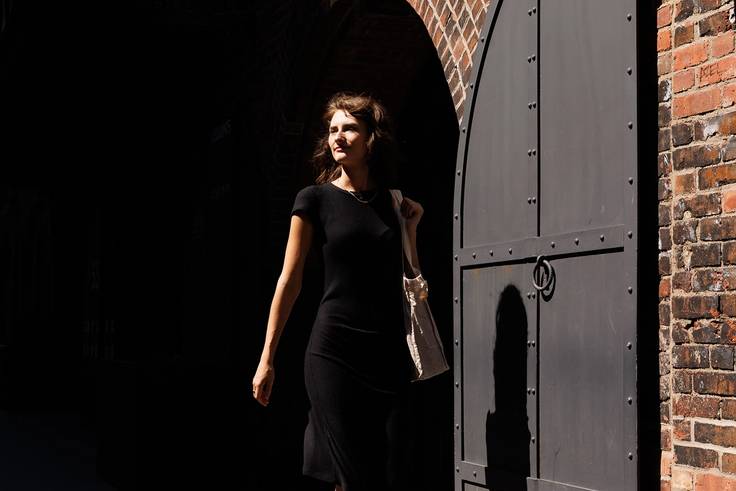
Increasing Equality
Hanna Cody ’16 always knew she wanted to improve human rights. After graduating with a self-designed major in gender studies, she landed an internship with United Nations Women, then worked at UNICEF for five years, focusing on issues impacting children and families with a concentration on supply chain and garment production. That’s when she began considering a shift to Fair Trade USA, where she’s now the standards manager for the factory program, serving as the representative for the Global Living Wage Coalition and helping write and implement the rules and requirements for earning Fair Trade status.
5 Things to Know about Fair Trade Certification
Cody highlights the important ways Fair Trade certification has the biggest impact.
A percentage of all Fair Trade-certified purchases goes directly to workers to address their most pressing needs. To date, $1 billion in impact has been delivered.
Fair Trade USA partners with 1,500 brands to deliver high-quality, ethically produced food, clothing, beauty products, and more.
Our programs address human rights, transparency, and environmental issues in partner supply chains, including forced labor, worker health and safety, discrimination, and safe chemical management.
Fair Trade USA collaborates to maximize impact for all workers. For example, we collaboratively advance living wage research and strategies as a member of the Global Living Wage Coalition.
Your community can join us in advocating for the Fair Trade movement through Fair Trade Campaigns.
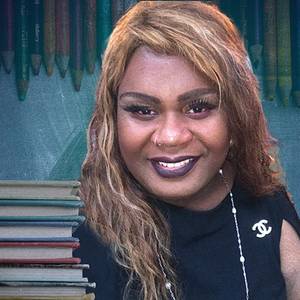
Improving Education
Alaine Jolicoeur ’14 has dedicated her career to making education accessible and equitable. The philosophy major has taught history in Baltimore public schools and French at a rural independent school in Massachusetts. She’s also focused on improving educational policies as a fellow at Chiefs for Change, a bipartisan nonprofit for educational leaders, and helped draft sex discrimination policy to better protect nonbinary and trans students. Jolicoeur is now working as an educational consultant for Teach for America and pursuing a master’s in educational studies at Johns Hopkins University focused on urban schools.
Why are you passionate about education? “Because it’s my duty and calling as an American to make sure that my society is healthy. Our role as educators and citizens is to have difficult conversations, listen to what others are saying, and make things better.”
What made you want to focus on policy? “I believe that education is critical for safeguarding a multiracial democracy, but if we don’t have a solid infrastructure for students to learn, we are failing. I taught at a school in Baltimore where we had to put trash bags over the AC unit because it was below 30 degrees in the room. This is in the U.S.—30 miles from the White House.”
What was the best lesson you learned at Rollins? “I had a class with [philosophy professor] Ryan Musgrave and former Rep. Pat Schroeder. Schroeder talked about people making comments about a woman’s place when she joined Congress, and she said, ‘Honey, you can’t get mad. You’re a human adult and have to find a way to get your message across without raising your blood pressure.’ No doubt this is hard work, but I’m in it for the long run.”
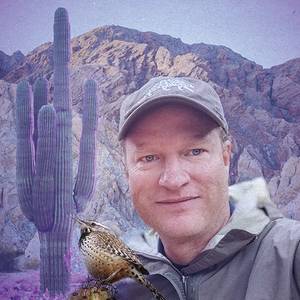
Protecting Biodiversity
For more than two decades, Brian O’Donnell ’93 has worked to conserve lands and wildlife. His career has included roles with the Conservation Lands Foundation, Trout Unlimited, and The Wilderness Society, and he’s played a role in helping conserve critical areas out West, including the Organ Mountains-Desert Peaks National Monument in New Mexico and the Copper Salmon Wilderness in Oregon, among others.
“Throughout my career, I couldn’t help but recognize that nature’s decline was happening at a rapid pace,” says O’Donnell, who double-majored in economics and history. “In May 2018, the largest-ever scientific report of the state of the planet was released, arguing that this rapid decline—including the threat to a million species—will have grave consequences for humanity unless we make transformational changes.”
That report prompted O’Donnell to launch Campaign for Nature, an advocacy, communications, and alliance-building effort to conserve at least 30 percent of the planet’s lands, fresh water, and oceans by 2030. As director, he has worked to build consensus on this global framework, including leading a major advocacy campaign that helped secure the Kunming-Montreal agreement, which adopted that goal and has been compared to the Paris Agreement’s commitment to limit global temperature increases. NPR recently called the agreement “the most significant effort to protect the world’s lands and oceans and provide critical financing to save biodiversity in the developing world,” as previous agreements only included 17 percent of land and 10 percent of marine areas.
“This initiative will go a long way to ensuring that we have an adequate amount of habitat to prevent the worst numbers of extinctions and to maintain functions for nature, if it’s done in the right places,” says O’Donnell. “Our entire economies and our entire lives depend on healthy natural systems and robust biodiversity.”
O’Donnell admits that he has been passionate about conservation for as long as he can remember, having grown up camping with his family and spending time outdoors in the desert in Egypt. But a couple of environmental studies courses he took at Rollins continue to resonate even decades later.
“Rollins had a big influence on me,” he says. “I still think back to some of the books we read in those classes, and they and my professors have inspired me throughout my career.”
6 Ways You Can Make a Big Difference
O’Donnell shares what he believes are the most impactful steps we can take to create real change from our own little corners of the world.
Maintain the intact habitats already in place.
Restore some of the areas that have been degraded and give them a chance to recover.
Reduce the pressure on these areas by thinking about what you consume and how much waste you create.
Vote for representatives who care about these important issues.
Hold corporations accountable for their actions.
Consider careers in conservation, including as a journalist, scientist, or policymaker. This crisis requires an all-hands-on-deck approach, and Rollins provides a solid foundation and the necessary skills we need to help in a range of related careers.
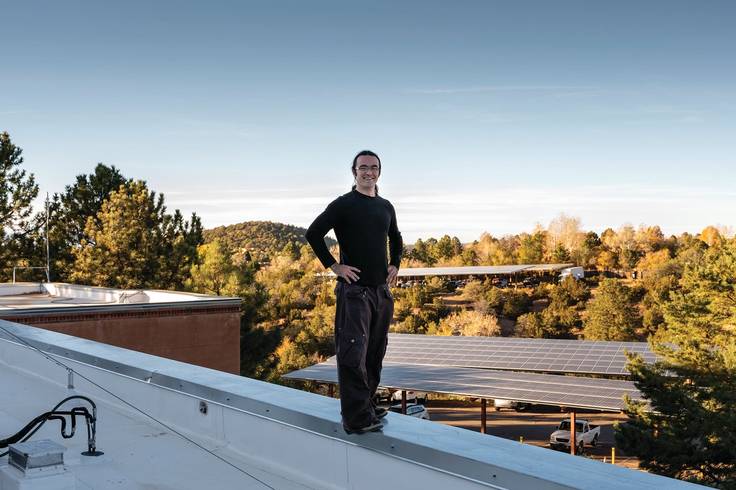
Creating Sustainable Solutions
Jonathan Lewis Smith ’14 recalls running his fingers across the “Life is for Service” plaque as he passed it daily going to and from his room in Strong Hall. Along the way, the motto began to direct his life.
“I’ve found that life really works better when it’s in service of other people and we’re creating something sustainable,” says Smith, who majored in political science.
After graduating, he joined Greenpeace for a time before realizing that sustainability applies as much to how we live, work, and engage with the world as the resources we consume. He’s since built a career working in business development for solar companies like Lucent Solar and Southern Beams. The latter is among the first businesses to offer autonomous, fully integrated modular designs that can be deployed quickly, moved when needed, and provide enough amperage to charge everything from cars to homes.
“The product itself is a game changer,” he says. “When I started working in solar, I thought anyone could get it, but most of the time, there are barriers, such as whether you make enough money on your taxes or own the property. The reason I like the Southern Beams company and the product, though still in development, is that it’s going to be less expensive, faster to deploy, and easily moved.”
It fits in with how Smith has come to understand sustainability as a call for all of us to think about how we spend energy, make a living, and contribute to the world—and to think about what’s possible.
“My goal is to inspire people," he says, “and to provide them with actual infrastructures that provide a better life.”
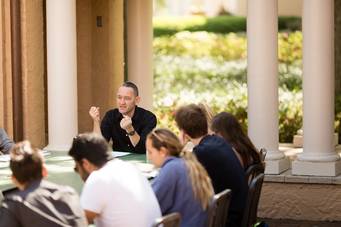
See for Yourself
Get a feel for Rollins’ unique brand of engaged learning and personalized attention through one of our virtual or in-person visit experiences.
Read More
March 20, 2024
Rollins’ External Relations Team Named Finalist for Prestigious PR Award
Rollins’ Office of Communications & External Relations earns a spot as an Anvil Award finalist for media coverage of valedictorian Elizabeth Bonker ’22.
March 19, 2024
Strom Publishes Book on History of Hunger Relief
History professor Claire Strom has co-written a new book on the national hunger relief movement alongside Dave Krepcho, president and CEO of Second Harvest Food Bank of Central Florida.
March 13, 2024
Small Classes, Big Impact
At Rollins, our commitment to small, discussion-based classes drives deeper learning and deeper connection.
